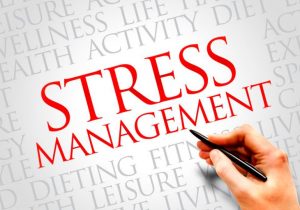Introduction
In our fast-paced world, stress has become a common part of daily life. Whether it stems from work, relationships, or financial pressures, its impact on our health and happiness can be profound. However, managing stress is not only possible but essential for maintaining our well-being. This article delves into effective strategies to reduce stress in your everyday life, helping you achieve a more balanced and fulfilling lifestyle.
From understanding the sources of stress to implementing practical stress-reduction techniques, we’ll guide you through essential steps to enhance your mental health and overall well-being. Ready to transform how you handle stress? Let’s explore these life-changing practices.
What Is Stress?
Stress is a normal human reaction to circumstances that seem uncontrollable or hard to handle. It could be overload following a fight with a loved one or a sense of strain in reaction to a demanding assignment. When you worry about money at night, it can also be the ideas that keep you up.
Indeed, stress has an impact on everyone, often in rather distinct ways. However, if we believe that the situation is uncontrollable, stress can become overpowering, leading to a variety of physical and emotional difficulties that might differ in intensity from person to person.
How might stress impact your day-to-day existence?

Stress is similar to carrying a large backpack; initially, we are unaware of its weight and continue to move forward. However, the load gets heavier and more challenging to handle as additional things are added to the bag over time, such obligations and anxieties.
Therefore, stress can impact our daily lives by affecting our relationships, bodily and mental health, and capacity to perform daily chores if we are unable to learn how to manage it.
The release of hormones that enable us to cope with stresses or threats might cause the body to react negatively to stress. Long-term, continuous secretion of these hormones can result in physical signs of stress, including:
- A headache
- Tense muscles
- Fast heartbeat
- Upset stomach
In addition to these physical signs of stress, you might also have typical emotional and behavioral symptoms. They are:
- Having trouble focusing
- Ignorance
- Overwhelmed
- Constant anxiety
- Mood fluctuations and irritability
- Changes in sleep
- Modifications to dietary patterns
- Using bad habits (such as drinking or smoking)
These are not all of the typical signs of stress; these are just a few. Furthermore, the causes of stress can affect the symptoms.
Types of Stress
- Acute stress: This is short-term stress that goes away quickly. It helps you manage dangerous situations or meet tight deadlines.
- Chronic stress: This type of stress lasts for a longer period and can be detrimental to your health if it’s not addressed.
Understanding the type of stress you’re dealing with is the first step in managing it effectively.
What Makes People Stressed?
Stress can be brought on by a wide range of circumstances, and it might vary based on our age. Teenage stress, for example, can be brought on by challenging familial circumstances, bullying, or tests. Young and older adults, on the other hand, could experience stress from their jobs or important life events, such as having children and dealing with chronic illnesses.
Effective Strategies to Manage Daily Stress

1. Practice Mindfulness and Meditation
Mindfulness and meditation are powerful tools for managing stress. They involve focusing your mind on the present moment and can significantly reduce anxiety levels.
Benefits of Mindfulness and Meditation
- Reduces anxiety and depression
- Enhances mood
- Improves concentration
Incorporating daily meditation into your routine can help calm your mind and reduce feelings of stress.
2. Develop a Regular Exercise Regimen
Physical activity is a great stress reliever because it may help bump up the production of your brain’s feel-good neurotransmitters, called endorphins. Exercise also refocuses your mind on your body’s movements, improving your mood and helping the day’s irritations fade away.
Exercise Tips
- Aim for at least 30 minutes of moderate exercise every day.
- Choose activities you enjoy, like yoga, cycling, or swimming.
3. Establish Healthy Sleep Habits
Sleep and stress are closely linked. Not getting enough sleep can cause stress, and new stress can disrupt your sleep. Improving your sleep schedule can help you feel more rested and reduce stress levels.
How to Improve Sleep
- Stick to a sleep schedule to regulate your body clock.
- Avoid caffeine and electronics before bed.
4. Foster Connections and Seek Support
Having a strong support network can help you through stressful times. Talk to friends and family about your feelings, or consider joining a support group.
Importance of Social Support
- Increases your sense of belonging.
- Improves your ability to cope with stress.
- Provides emotional and practical support.
5. Manage Time Effectively

Poor time management can cause a lot of stress. When you’re stretched too thin and running behind, it’s hard to stay calm and focused.
Time Management Tips
- Prioritize tasks and set achievable goals.
- Break projects into small steps and set deadlines.
6. Maintain a Balanced Diet
What you eat has a profound impact on your stress levels.
Dietary Tips for Reducing Stress
- Eat plenty of fruits, vegetables, and whole grains.
- Avoid excessive caffeine and sugar.
Table: Top Techniques to Manage Stress
| Technique | Benefits | How to Implement |
|---|---|---|
| Mindfulness and Meditation | Reduces anxiety, improves mood | Practice daily for 10-20 minutes |
| Regular Exercise | Increases endorphins, improves mood | 30 minutes of moderate exercise daily |
| Healthy Sleep Habits | Reduces stress, improves mental clarity | 7-9 hours per night, maintain a regular schedule |
| Social Support | Provides emotional support, decreases stress | Connect with friends, join groups |
| Time Management | Reduces anxiety, improves productivity | Prioritize tasks, set deadlines |
| Balanced Diet | Stabilizes mood, enhances energy | Eat balanced meals, limit caffeine and sugar |
Conclusion
Stress might be an unavoidable aspect of life, but it doesn’t have to overwhelm you. By employing strategies such as practicing mindfulness, exercising regularly, managing your time, and maintaining a healthy diet, you can significantly reduce stress and improve your quality of life. Remember, the key to successful stress management is consistency and a proactive approach. Start small and gradually incorporate these practices into your daily routine for the best results.












